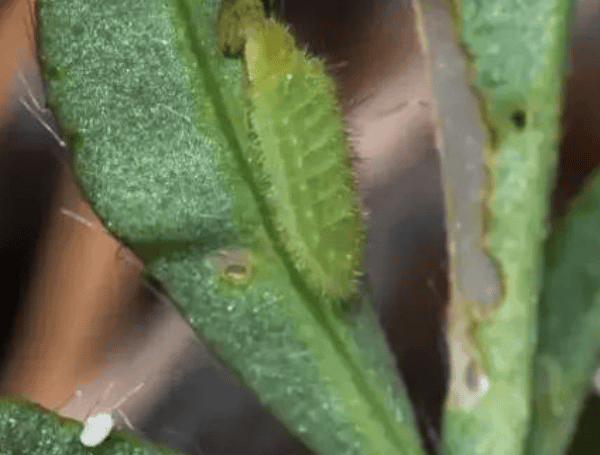
In a promising step for conservation, tiny caterpillars of the rare frosted elfin butterfly have been reintroduced into the wilds of north Florida earlier this month. This carefully orchestrated release within Ichetucknee Springs State Park marks the culmination of three years of collaborative effort by the Florida Fish and Wildlife Conservation Commission (FWC), Tall Timbers, the Florida Museum of Natural History, and the Florida Park Service.
The frosted elfin, a striking little butterfly currently under consideration for federal listing under the Endangered Species Act and recognized as one of Florida’s Species of Greatest Conservation Need, has suffered significant declines across much of its historical range in the eastern U.S. and southern Canada. Florida now harbors some of the largest remaining populations in the Southeast, making this reintroduction effort particularly crucial.
READ: Gulf Anglers Reminded: Florida Recreational Greater Amberjack Harvest Closed In May
To bolster these vulnerable populations, a captive breeding program was established at the Florida Museum of Natural History. Wild frosted elfins were carefully collected from the Florida Panhandle to initiate this program, with the goal of producing individuals for release into suitable, yet currently unoccupied, habitats in north Florida. The chosen sites, including areas within Ichetucknee Springs State Park, feature fire-managed sandhill ecosystems boasting ample patches of sundial lupine, the butterfly’s essential host plant.
During the recent release, the captive-raised frosted elfin caterpillars, nearing their pupation stage, were meticulously placed directly onto healthy sundial lupine plants. This strategy allows the caterpillars to continue feeding and naturally transition into their pupal stage within the leaf litter beneath their host plant.
Adding a layer of scientific rigor to the project, the team is also experimenting with the use of protective enclosures around some of the lupine plants. This will help determine if safeguarding the caterpillars from potential predators enhances the success rate of the reintroduction.
READ: Severe Storms Slam North And Central Texas, Threatening Damaging Winds, Hail, And Tornadoes
The dedicated team of researchers and conservationists will be closely monitoring the reintroduction area throughout the next flight period of the frosted elfin, which typically occurs from February to April. Their observations will focus on whether adult frosted elfins successfully emerge, signaling a positive step towards the re-establishment of this beautiful and important butterfly in north Florida. This initiative offers a beacon of hope for the frosted elfin and underscores the critical role of collaborative conservation efforts in protecting Florida’s unique biodiversity.
Please make a small donation to the Tampa Free Press to help sustain independent journalism. Your contribution enables us to continue delivering high-quality, local, and national news coverage.
Connect with us: Follow the Tampa Free Press on Facebook and Twitter for breaking news and updates.
Sign up: Subscribe to our free newsletter for a curated selection of top stories delivered straight to your inbox.